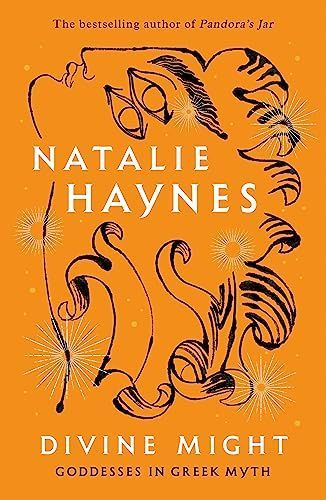
Divine Might Goddesses in Greek Myth
Natalie Haynes, author of the bestselling Pandora’s Jar, returns to the world of Greek myth and this time she examines the role of the goddesses. We meet Athene, who sprang fully formed from her father’s head: goddess of war and wisdom, guardian of Athens. We run with Artemis, goddess of hunting and protector of young girls (apart from those she decides she wants as a sacrifice). Here is Aphrodite, goddess of sex and desire – there is no deity more determined and able to make you miserable if you annoy her. And then there’s the queen of all the Olympian gods: Hera, Zeus’s long-suffering wife, whose jealousy of his dalliances with mortals, nymphs and goddesses lead her to wreak elaborate, vicious revenge on those who have wronged her. We also meet Demeter, goddess of agriculture and mother of the kidnapped Persephone, we sing the immortal song of the Muses and we warm ourselves with Hestia, goddess of the hearth and sacrificial fire. The Furies carry flames of another kind – black fires of vengeance for those who incur their wrath. These goddesses are as mighty, revered and destructive as their male counterparts. Isn’t it time we looked beyond the columns of a ruined temple to the awesome power within?
Reviews
Teresa Bonifácio@teresabonifacio
lala@polijus
Highlights
Lauren@boandr
Page 186
Lauren@boandr
Page 170
Lauren@boandr
Page 164
Lauren@boandr
Page 67
Lauren@boandr
Page 42
Lauren@boandr
Page 33
Lauren@boandr
Page 4
Lauren@boandr
Page 2